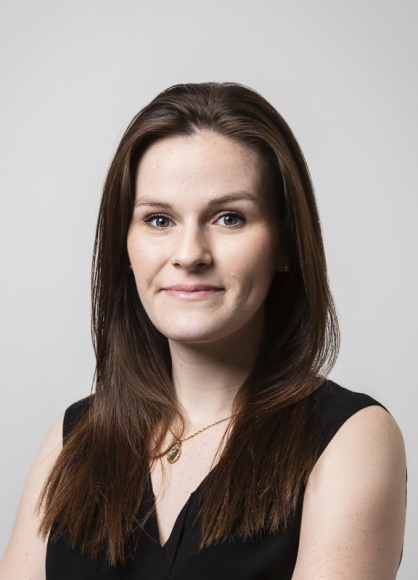Savills IM bolsters ESG team as it publishes Net Zero Carbon Pathway
Savills Investment Management (“Savills IM”), the international real estate investment manager, today announces changes to its ESG team as the firm consolidates its restorative business ambitions, namely by publishing its Net Zero Carbon Pathway, available to view here.
The Net Zero Carbon Pathway sets out Savills IM’s Net Zero Carbon ambitions to achieve Net Zero Carbon Emissions by 2040 and become a restorative business by 2050. By restorative, Savills IM means it will seek to put more back into the planet and society than it takes out. The Net Zero Carbon emissions target applies to all assets that the firm holds for more than two years which is equivalent to 98% of its global AuM as well as all new funds that are developed.
Cathy Keir has been appointed as Senior ESG Manager. In her new role, Cathy will support investment teams focusing on Europe initially, implementing ESG targets and initiatives set out in the Net Zero Carbon pathway. This will help Savills IM to enact its ambition to become an ESG influencer. Based in London, she will report to Emily Hamilton, Head of ESG. Cathy joins from BMO Real Estate Partners, where she held the role of Sustainability Analyst.
As well as recruiting externally, Savills IM has expanded its ESG team by transitioning several staff into ESG-focused roles. Rosie Clarkson, who previously served as Investment Relations Coordinator, has been promoted to ESG Manager and will manage internal engagement, including Savills IM’s Restorative Business Champions programme in partnership with Future Makers; Steven Evans, Senior Risk Manager, has been working with transaction teams to support deeper ESG integration as part of the acquisitions process, particularly focusing on climate action; and Lorna Mackie, Head of the Luxembourg Office, is focusing on ESG disclosure regulations and requirements.
The team will also receive support from Michelle Sartorio who, in addition to her role as Global Head of Communications and Marketing, is spearheading priority ESG strategic projects, such as the ESG occupiers’ engagement programme, and will collaborate with the investment team as Savills IM builds its impact investing platform.
Furthermore, Savills IM has supported over 40 employees through the Better Buildings Partnership ESG Training Course for Real Estate Professionals alongside internal training on further integrating ESG into the Investment Advisory Committee processes and the impacts of the rapidly evolving ESG disclosure regulations.
More than 80% of AuM has an ESG programme in place and Savills IM have already started to work towards net zero carbon outcomes through delivering its first Net Zero Ready Logistics building in Belvedere, SE London, as well as retrofitting an existing logistics warehouse from EPC C to EPC A+. Ongoing monitoring of both buildings will be taking place working with the occupiers to ensure they perform to the designed energy improvement standards. Savills IM also has plans to undertake more than 50 Net Zero Carbon Audits this year as part of its ESG programme.
Alex Jeffrey, Global Chief Executive, Savills IM, commented: “As an investment manager we understand the importance of channelling finance to be a force for good and the investment that will be needed to transition the built environment to at least net zero emissions before 2050. Our Net Zero Carbon pathway outlines our commitment to become a restorative business. This means we will seek to put more back into society and the planet than we take out. Promoting and enforcing ESG is a key part of our investment framework as well as a central pillar in our responsibility towards investors, clients, employees and the wider community.”
Emily Hamilton, Head of ESG, Savills IM, added: “We are thrilled to welcome Cathy to Savills IM, and our Savills IM colleagues to the ESG team. Real estate investment managers have a pivotal role to play in promoting sustainability and corporate governance, and I’m delighted that Savills IM has been able to make these strides to work towards delivering a positive impact.”
Cathy Keir, Senior ESG Manager, Savills IM, added: “I am delighted to join such a dynamic and innovative team with such a strong reputation in the real estate market. I look forward to working with the team to ensure Savills IM continues to embed strong ESG principles and actions into every aspect of the business.”

Łotewski producent wysokiej jakości domów prefabrykowanych wchodzi na polski rynek

Deweloperzy ukrywają ceny mieszkań. Z troski o klientów czy swoje portfele?

Więcej przestrzeni, mniej hałasu – dlaczego Polacy coraz częściej wybierają przedmieścia?
Więcej ważnych informacji
 Jedynka Newserii
Jedynka Newserii

 Jedynka Newserii
Jedynka Newserii

Polityka

Firmy dzierżawiące grunty od Skarbu Państwa muszą zwrócić majątek rolny. Zagrożony jest też wspierany przez nich ośrodek rehabilitacyjny
Działalność ośrodka rehabilitacji dla dzieci z niepełnosprawnościami w Głubczycach, w województwie opolskim, jest zagrożona, o czym alarmuje Stowarzyszenie „Tacy Sami”. Zagrożenie jest konsekwencją restrukturyzacji spółki Top Farms Głubczyce, która jest jednym z największych pracodawców w okolicy i od lat wspiera działalność stowarzyszenia. Rolnicza spółka nie wie, jakie będą dalsze losy dzierżawionych do tej pory przez nią ziem, które w listopadzie br. muszą wrócić do Zasobu Skarbu Państwa. Zarząd spółki od wielu miesięcy apeluje do Krajowego Ośrodka Wsparcia Rolnictwa o wiążące decyzje w sprawie powołania Ośrodków Produkcji Rolniczej, które miałyby powstać na zwróconych gruntach, oraz kryteriów wyboru ich nowych dzierżawców.
Bankowość
Polskie kredyty hipoteczne wciąż jednymi z najdroższych w Europie. Zdaniem członka RPP odgórne ograniczanie marż banków się nie sprawdzi

Hipoteki w Polsce, co podkreśla też wielu polityków, należą do najdroższych w Europie. To nie tylko kwestia wysokości stóp procentowych, ale też marży banku. Zdaniem członka RPP prof. Ireneusza Dąbrowskiego jest tylko możliwość wpływania na ten pierwszy czynnik, bo regulacyjne ograniczenie wysokości marży byłoby trudne do wdrożenia.
Ochrona środowiska
Budowa morskich farm wiatrowych w Polsce szansą na kilkadziesiąt tysięcy nowych miejsc pracy. Wciąż brakuje jednak wykwalifikowanych pracowników

W Krajowym Planie w dziedzinie Energii i Klimatu rząd przewiduje zainstalowanie do 2030 roku około 5,9 GW w morskich farmach wiatrowych i kolejnych 12 GW w ciągu następnej dekady. Offshore ma być istotnym filarem dekarbonizacji krajowej gospodarki. Realizowane przez polskie spółki wraz z partnerami zagranicznymi projekty tzw. fazy I nabierają tempa i wkraczają w etap budowy infrastruktury na lądzie. Wśród wyzwań, które czekają wykonawców, jest m.in. brak pracowników z branży offshore. Pomocne może być ściąganie do kraju Polaków, którzy pracują na zagranicznych projektach morskich.
Partner serwisu
Szkolenia

Akademia Newserii
Akademia Newserii to projekt, w ramach którego najlepsi polscy dziennikarze biznesowi, giełdowi oraz lifestylowi, a także szkoleniowcy z wieloletnim doświadczeniem dzielą się swoją wiedzą nt. pracy z mediami.


![Nestlé w Polsce podsumowuje wpływ na krajową gospodarkę. Firma wygenerowała 0,6 proc. polskiego PKB [DEPESZA]](https://www.newseria.pl/files/1097841585/fabryka-nesquik_1,w_85,r_png,_small.png)






.gif)

 |
| |
| |
|